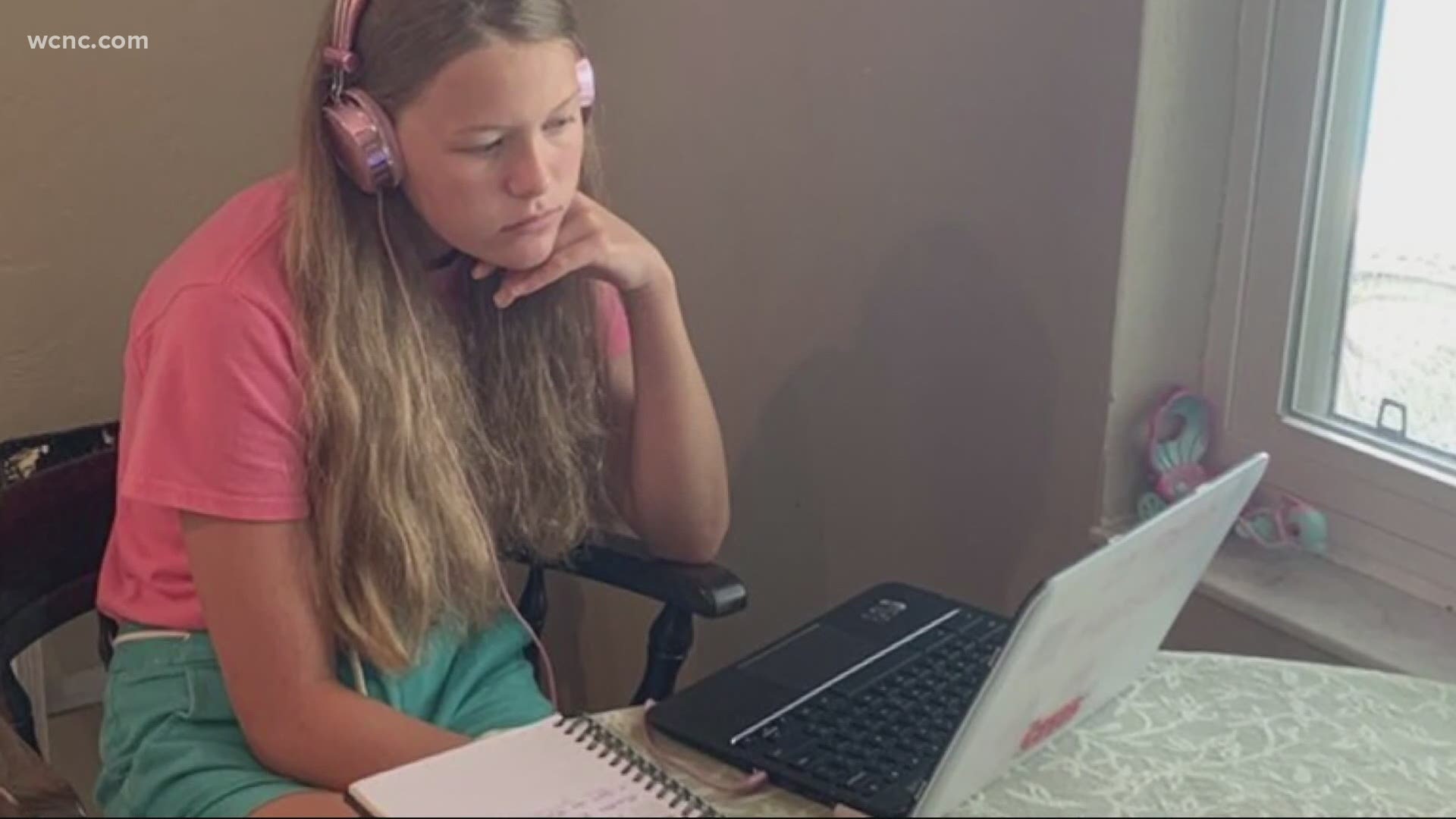CABARRUS COUNTY, N.C. — Cabarrus County Schools will temporarily move to remote-learning in light of COVID-19 trends in North Carolina. The vote passed 5-2.
The move to remote learning will begin Monday, Dec. 14, and end Friday, Jan. 15, 2021. Students and staff would return on Tuesday, Jan. 19, following the scheduled day off on Martin Luther King Jr. Day.
Wednesday, North Carolina health officials reported a new record of single-day COVID-19 cases, two days before Gov. Roy Cooper's new modified stay-at-home order takes effect.
The North Carolina Department of Health and Human Services reported 6,495 new cases Wednesday. Hospitalizations also hit a new peak with 2,440 people hospitalized statewide. The previous single-day high for COVID-19 cases was 6,438 on Sunday, Dec. 6.
Data from the Cabarrus County Health Department shows the number of positive cases has trended upward pretty much since November. For context, we know people were getting tested ahead of the holidays.
However, one week after Thanksgiving , the number of daily cases continued to peak with 161 cases reported on Dec. 5 and 167 cases reported Wednesday.
Board members noted Cabarrus County is now in the "red" zone of North Carolina's new COVID-19 alert system. That means there is, as the state defines it, critical spread of the coronavirus within the community. The percentage of all COVID-19 tests in Cabarrus County is 13% and Atrium Health-Cabarrus is near capacity.
On Nov. 24, Cabarrus County Schools Board of Education voted to stick with a hybrid schedule following Thanksgiving, which has a rotation of in-person and remote learning. Schools picked up Nov. 30.
At the Dec. 9 meeting, board members discussed the potential move to remote learning -- discussing student safety, staff concerns, and impact on the community.
One board member, Tim Furr, said they have previously strictly advocated for staying with in-person learning but now see the need to temporarily transfer to remote learning as COVID-19 cases continue to rise.
"I'm going to have to eat crow because I've said since I was running for this position that I want the kids in school and I'm [going to] get them in school, but this thing is fluid, it changes every day," Furr said.
Furr said his businesses have been impacted, and he knows there's no one guide on how to handle COVID-19 and schools.
"What scares me more than anything and is really brought to my attention this week is that our priority is kids -- I get that, I'll always be my number priority is kids," he said. "But guess what? We've got to have staff to take care of them while they're at school."
Furr said his biggest fear is a parent will take their kid to school only to find out there isn't any staff left.
"We don't want to get to that," Furr said. "I think we're near that now in some places."
On the other side of the vote, Laura Blackwell said she was worried keeping students out of school would cause lasting damages to their education, and cited the death rate for COVID-19. Rob Walter also voted against moving to full remote learning.
"If I could have it my way we would be Plan A in a heartbeat," Blackwell said. "Being a parent with kids that are suffering with this virtual learning I have seen how they are not able to thrive in this kind of situation. I've already had enough people who have contacted me as well who are having the same issues with their children. I wear a mask, I social distance because I feel like that's the right thing to do right now. But I'm also fearful for these children who are not getting the education that they need."
Walter said he'd rather close individual schools experiencing outbreaks than shutting down the entire district.
“We have community spread, and we have a school system where we take every precaution to make it safe,” said Walter. “We’re saying that it's not from our school system, that it's out there in the community, so I'd like to hear why closing the schools is such a great idea to solve the problem."
Blackwell agreed, saying, "we cannot keep these children out of school for these continued spikes."
Other board members expressed concern over how virtual learning has impacted nonverbal students and other students that may need more hands-on learning, occupational therapy, or physical therapy.
Superintendent Dr. Chris Lowder said a model is in place for those situations from earlier this year, and while the model may not be perfect, it could still help educators in the temporary remote learning phase.
The board eventually 5-2 to move to the temporary remote learning schedule, with another board meeting scheduled for Monday.
The move comes just one day after the Charlotte Mecklenburg Schools Board of Education voted 6-3 to move back to remote learning, starting Dec. 14.
North Carolina will be implementing a modified stay-at-home order and a nighttime curfew beginning Friday, Governor Roy Cooper announced Tuesday as COVID-19 trends continue to rise statewide.
The new restrictions, which take effect at 5 p.m., create a nighttime curfew from 10 p.m. to 5 a.m. The restrictions continue through at least Jan. 8, 2021.
More than 80% of North Carolina counties are in the orange or red on the state's coronavirus spread map. Mecklenburg was among those counties with critical or substantial community spread of the coronavirus.

